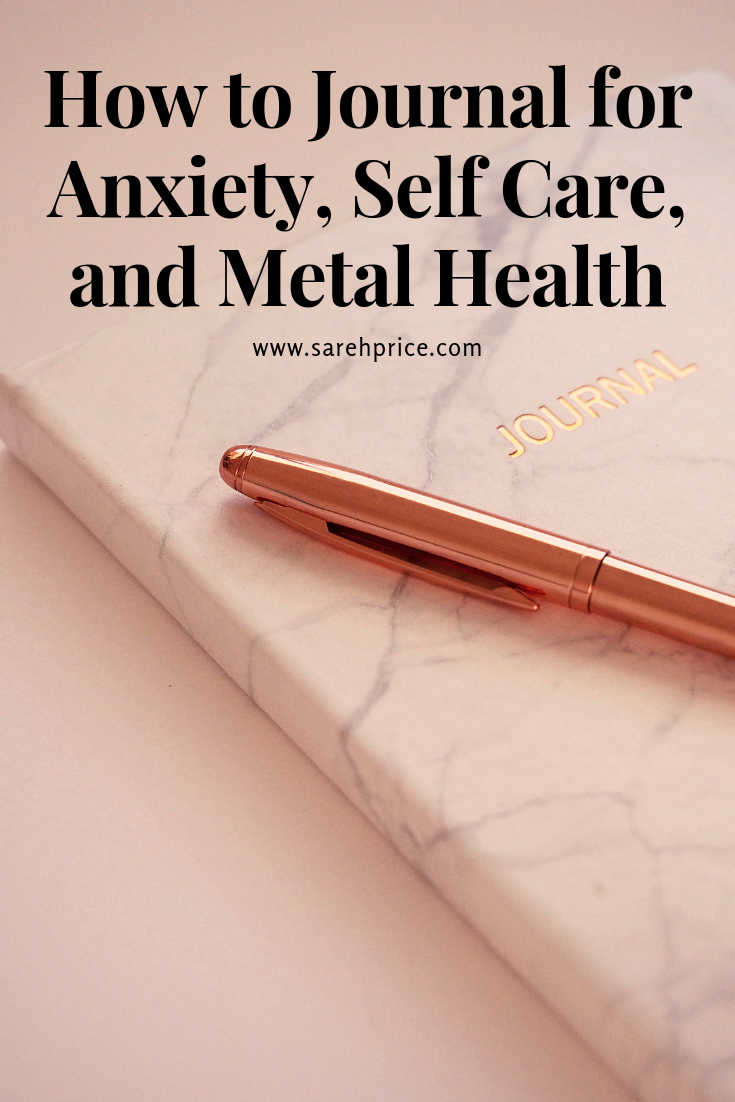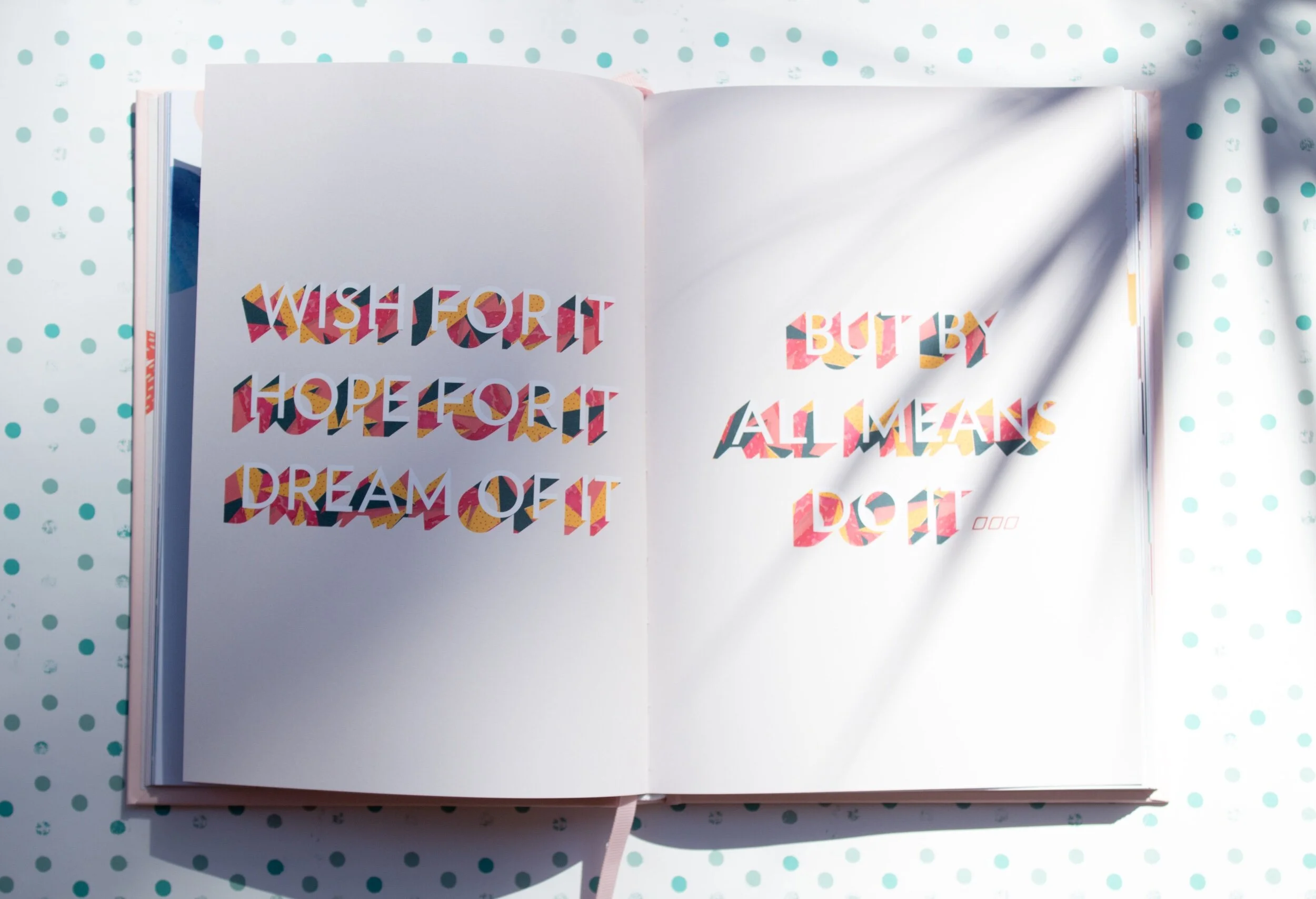How to Journal for Anxiety, Self Care, and Mental Health
Photo by Plush Design Studio on Unsplash
I wrote previously, my Master List for Self Care, and today I wanted to go more indepth about journaling and how to reap the full benefits of it. If you read the previous article, you’ll see some of the same advice but more has been added here so I could talk more about it without boring anyone who doesn’t want to read it.
I believe having a journal for self care, mental health, and/or stress and anxiety is very beneficial. I’ve personally had a journal since I was in 6th grade when my parents got a divorce and my mom moved us from North Carolina to Minnesota.
I kept it up for a long time until my sophomore year of high school and then had an on and off relationship with my journal until last year. I went through some awful stuff and used my journal to help process what I couldn’t tell anyone.
Since the fall of last year, I’ve started not using it as much as I used to and I personally think that it is okay to fall out of the habit. I tend to use it more when I’m really stressed and everyone has heard what’s going on 500 times.
But I do think having a regular practice of safely letting out your feelings and emotions is healthy for us. That can be really anything you like, but personally I think keeping a dairy or journal is one of the best ways.
What’s the Difference between a Diary and a Journal?
Before we get into it, I want to highlight the differences generally considered between a diary and a journal.
A Diary is a structured daily log of occurrences, events, or whatever. If you browse the notebook sections of Target and pick up a notebook with dates across the top or a specific section for a date, then it’s a diary. Dairies can also come in other shapes and topics but generally it’s something specifically used every day to record things.
A Journal is much less structured and can be written in whenever you feel about it. It’s generally lined but dateless and gives you much more creative freedom to use it however you’d like. I guess a sketchbook would be the most extreme version of an unstructured notebook.
Regardless, journals are meant to record your thoughts, feelings, and can be more indepth personally than a dairy can. In our context, a journal would be better because we’re focusing on using it to explore events, ideas, situations, and topics to better our mental health.
We’re not just logging events, we’re taking a critical look at a situation and how we can better respond to it.
But what if I hate writing? (Or can’t write)
Great news! There is still ways to get the benefits I believe of writing without having to write words.
I believe using ideas like art therapy can be very beneficial. You can also take audio journals or vlogs using you smartphone. This is great for people who hate to write or might not be able to physically write themselves.
Ideas for journals:
The scrapbook
The smashbook
The sketchbook
The dream journal
The digital journal
The video journal
The audio journal
The blogging journal
The A Line a Day dairy
The Tumblr Journal
The travel journal
Gratitude Journal
and more!
If you go the handwriting route, it’s important to note that you don’t have to have a fancy journal if you don’t want or can’t afford one. It’s more important to use that cheap dollar store notebook than nothing at all. And the same goes for pens or pencils.
There are lots of techniques for how to keep a journal and where to start if you don’t know how. Journaling is all about what works for you.
Keep it judgement free.
How to Write to Improve your Mental Health
There are a lot of techniques out there for journals, but there is an important distinction between casually writing and writing with the intent of helping your mental health and stress.
The Center for Journal Therapy has a great acronym I really like. WRITE.
W-What are you writing about and why?
R- Review and Reflect on what you’re writing about.
I- Investigate and dig in deeper into what you’re feeling and why.
T- Time yourself. It’s important to know 15-20 minutes is a good recommended time to write.
E- Exit Smartly. Note what you’re feeling and if there is any actions you can take to improve the situation or feelings you’re writing about or any key takeaways.
The important difference here is reviewing what you write about and the actions or takeaways from it. After every entry you write, make sure to ask questions such as:
What can you learn or how can you grow from this?
Look at problems involving other people from their POV and be realistic if you’re being unfair towards them about it.
How can you do better next time something like this happens?
How did you feel before vs after you wrote this?
If you’re worrying about something in the future, what are all the possible outcomes? Are there any good outcomes you can think of? What are you afraid of happening and why? How can you change your mindset so this isn’t so worrying?
Journals help us be self aware and learn how to express our emotions without needing feedback from other people or by acting or saying things in the moment. --Click here to Tweet this!
But it’s also important to know when you need to take a break or a step away. Try not to ramble or get caught in an endless rant cycle. That’s why they recommend only writing for a set amount of time or to write about a topic or scenario and not get astray.
Journaling for mental health shouldn’t be a place of always negativity. Try to keep note of positive things as well and try to look constructively about what you’re writing and feeling.
Be honest with what’s going on.
Feel free to write anywhere you need to, but having a specific spot and time can help some people feel more relaxed.
If you are feeling stressed, try writing in a calming place like your bedroom, outside, a library, a bookstore, or anywhere you feel at peace.
Don’t get caught up in the grammar or any writing styles. Remember your journal is your safe spot to connect with yourself.
Be aware when you need to be honest with yourself without being too critical.
If you’re like me and sometimes get anxiety but can’t pinpoint why, examining the moment later can be useful. To figure out the reason, try writing down when you felt anxious like this. See if you can recall what you were doing before and during the moment.
What were you thinking when you had this episode?
I find often times when I get anxious but don’t understand why, it’s usually because I briefly remembered something anxious inducing and then jumped to another thought. I find it helpful to take a moment, breathe, and remember that thought.
Once I remember what exactly made me anxious, I can figure out ways to calm down and take care of the issue.
Mix It Up if you feel uninspired or bored
To mix up your journal so it doesn’t get boring, try the following ideas so you never get stuck in one way of journaling.
Fill-in-the-blank
Take Inventory of your major areas of living (health, relationships, living arrangements, etc)
Lists
Unsent Letters
POV Character sketches
Topical writing or Prompts
Drawing or sketching
Saving items in your journal
Free writing
And in case you’re sitting there not wanting to write about what’s going on or you need ideas, there are plenty of prompts on the internet to get you started. Remember to find prompts that help you explore the situation, your emotions, and thoughts.
A Sample List Of Prompts for Mental Health
Something I’d like to achieve is…
When you get stressed or depressed, your symptoms present as ______. What are some ways you can feel better?
What good habit do you want to begin this month?
Who would you like to connect or reconnect with and why?
What habit would you most like to break and why?
What areas in life are you feel the best and worst?
How do you respond to challenges?
What was the last big challenge you faced?
How to I respond to negative people or people I don’t agree with?
How do I respond to bad news or inconvenience?
What is a new thing I learned today?
What do I need to forgive myself for?
How do I add value to the world around me?
When was the last time you did something nice for yourself?
What do you need to hear right now? Do you need to hear it from any particular person?
What do you look forward to tomorrow?
What positive changes have you made in the past year?
What is your mission statement?
What keeps you up at night?
How do you show love?
Describe your best friend. How would they describe you?
What do you wear that makes you feel your best?
Reflect on a negative thought cycle.
What is the overarching emotion in you’re life right now?
What challenges are you currently facing? What are some solutions?
What are 5 positive traits about yourself?
What are you currently really proud about?
When do you feel the most confident?
Prompts for an Art Journal
Illustrate your favorite quote or song.
Personality of a stuff animal.
What does your favorite color make you think of?
Illustrate a word.
Illustrate the meaning of your name.
Draw something you never have before.
Illustrate your day or a recent good memory.
Draw something that scares you.
What was your greatest accomplishment?
“What do you use for a journal and have you ever used it regularly? Leave a comment below!”











